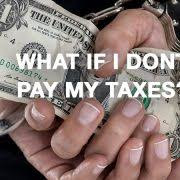On July 28, 2022 we posted Manchin & Schumer Agree on Build Back "SOMEWHAT" Better Deal With 15% Corp. Minimum Tax & Increased Tax Enforcement, where we discussed that Joe Manchin said on Wednesday, July 27, 2002, that he had reached an agreement with Majority Leader Chuck Schumer on legislation that would impose a 15% corporate minimum tax as part of a larger package to address tax, energy and health care costs.
Now the Senate over the weekend on August 7, 2022 debated a revised version of Democrats' Inflation Reduction Act (H.R. 5376), following changes made as a result of negotiations with Arizona Sen. Kyrsten Sinema, the majority party's last holdout on the tax, health care, and climate legislation.
- The altered bill includes a pared-down proposal for a 15% minimum tax on large, profitable corporations and the removal of a planned tax increase on carried-interest income. Democrats added a 1% excise tax on stock buybacks, as they remain intent on using the budget reconciliation measure to reduce the U.S. deficit by about $300 billion.
- Under the deal between Sinema and Democratic leaders, the proposed corporate minimum tax would be winnowed through the introduction of an exemption for depreciation tax deductions. The revenue gap of about $100 billion created by the new exemption would be closed through the new 1% excise tax on stock buybacks.
"We are adding in an excise tax on stock buybacks that will bring in $74 billion," Senate Majority Leader Chuck Schumer told reporters on August 5. The New York Democrat didn't say when the tax would take effect if the legislation is enacted.
Late last week, Schumer had scheduled an initial procedural vote on the package for August 6, triggering a series of votes on the bill's substance that could be concluded within days. If the bill passes the Senate, the House of Representatives would also have to approve it to send it to Biden for his signature.
House Majority Leader Steny Hoyer has said members of the lower chamber would be called back from their August recess to cast votes if the bill passed the Senate.
Sinema said in a statement late on August 4 that Democrats had changed the bill to "protect advanced manufacturing and boost our clean-energy economy." U.S. manufacturers had expressed concerns that the original corporate minimum tax plan would harm their businesses by deferring or denying the benefit of accelerated depreciation. The revised bill retains the accelerated-depreciation benefit for some manufacturers.
Citing fresh data from Congress' Joint Committee on Taxation, Senate Finance Committee Chair Ron Wyden, an Oregon Democrat, countered that the tax would largely fall on profitable companies that pay little income tax.
Exceeding $1 Billion And A Tax Rate Of Under 5% On Their Financial Statements, According To The JCT Analysis.
It found that the companies had an financial statement income of $8.9 billion on average and paid an effective tax rate of 1.1%.
"While we know that billion-dollar companies are avoiding paying their fair share, these tax rates are lower than we could have imagined," Wyden said.
Reporting Record Profits To Their Shareholders."
Sinema had opposed raising taxes on carried interest throughout the talks, while Manchin, another key centrist Democrat, had pushed for it.
Manchin in late 2021 scuttled Senate consideration of the House-passed BBB, saying he couldn't support a large spending package with inflation at its highest level in decades. Through last week, Democrats had spent the year attempting to revive elements of the BBB, ultimately abandoning plans for a more generous child tax credit, subsidized child care, and universal prekindergarten, among other benefits.
- The bill's narrower scope also includes empowering Medicare to negotiate prices of some prescription drugs, resulting in $102 billion in new revenue.
- Repealing a restriction from Donald Trump's presidency on prescription drug rebates is expected to bring in $122 billion, with other money to come from giving tax breaks to businesses and individuals to reduce carbon emissions, and extending subsidies for health insurance premiums under the Affordable Care Act.
- The stock buyback provision had been on the table during months of talks between Schumer and Manchin but was dropped in favor of the 15% minimum tax on large corporations.
However, the buyback provision runs counter to that approach and is expected to generate less than the $124 billion estimated when the House passed it last year.
Other revenue would come from stricter enforcement of tax compliance by the IRS. Enforcement-related funds, at $45.6 billion, make up more than half of the total $80 billion in additional appropriations, which have survived the bill's revisions. The IRS has said its goal is to reduce the tax gap by strengthening its ability to capture revenue from taxes that might otherwise not be collected.
Read more at: Tax Times blog

.jpg)












